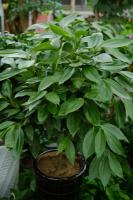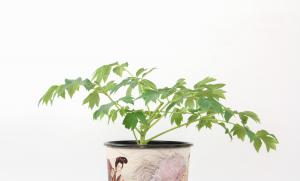Do You Treat Plant Deficiency with Distilled Water?
Plants are often thought of as easy to care for, but in reality, they are complex organisms that require a specific set of nutrients to thrive. When these nutrients are lacking, the plant can suffer from deficiencies, which can lead to stunted growth, leaf discoloration, and even death. One common question among plant owners is whether or not they should use distilled water to treat these deficiencies. Let's explore this topic further.
What Is Distilled Water?
Distilled water is a type of purified water that has been stripped of all minerals and impurities through a distillation process. In this process, water is boiled, and then the steam is condensed back into water, leaving behind any impurities. This leaves the water pure and free from any contaminants that could be harmful to plants.
Can Distilled Water Help with Plant Deficiencies?
While distilled water is an ideal way to provide your plants with clean, mineral-free water, it is not a cure-all for plant deficiencies. In fact, using only distilled water to water your plants can lead to a lack of nutrients, which can cause deficiencies in the first place. Plants need a healthy balance of nutrients, including nitrogen, phosphorus, and potassium, to grow properly. These nutrients can be found in traditional tap water, which often has a balanced pH and trace amounts of minerals.
Why Do Plants Need Minerals?
Plants need minerals to perform a variety of functions, including photosynthesis, protein synthesis, and the formation of chlorophyll. Chlorophyll is essential for the plant's ability to transform light energy into chemical energy, which it uses to fuel growth and development. Without the proper levels of minerals, plants can become weak, discolored, and stunted, which can ultimately lead to death.
How Can You Identify Plant Deficiencies?
Identifying plant deficiencies can be challenging, as different deficiencies can cause similar symptoms. Some common signs of deficiencies include yellow or discolored leaves, stunted growth, and leaf curling or drooping. To identify a deficiency in your plants, you'll need to do some detective work. Start by examining the leaves and the surrounding soil. Look for any discoloration or unusual growth patterns in the leaves, as well as signs of pests or disease. You may also want to test the soil pH and nutrient levels to identify any imbalances that could be contributing to the deficiency.
How Can You Treat Plant Deficiencies?
The treatment for plant deficiencies will vary depending on the specific nutrient that is lacking. In some cases, adding a fertilizer or mineral supplement to the soil can help to restore balance. In other cases, you may need to adjust the pH of the soil to encourage better nutrient uptake. In severe cases, cutting off any damaged leaves or stems may be necessary to allow the plant to redirect energy to new growth. However, it's critical to remember that over-fertilizing can be just as harmful as under-fertilizing, so always follow the instructions on the package carefully.
Conclusion
In summary, while distilled water is an excellent way to provide your plants with clean, mineral-free water, it should not be used as a standalone treatment for plant deficiencies. Plants require a healthy balance of nutrients to grow properly, and these nutrients can be found in traditional tap water. If you suspect a deficiency in your plants, take the time to examine the leaves, soil, and surrounding environment to identify the root cause of the problem. With a little detective work and the right treatment plan, you can help your plants thrive and grow strong.

 how many times do yo...
how many times do yo... how many planted tre...
how many planted tre... how many pine trees ...
how many pine trees ... how many pecan trees...
how many pecan trees... how many plants comp...
how many plants comp... how many plants can ...
how many plants can ... how many plants and ...
how many plants and ... how many pepper plan...
how many pepper plan...




























